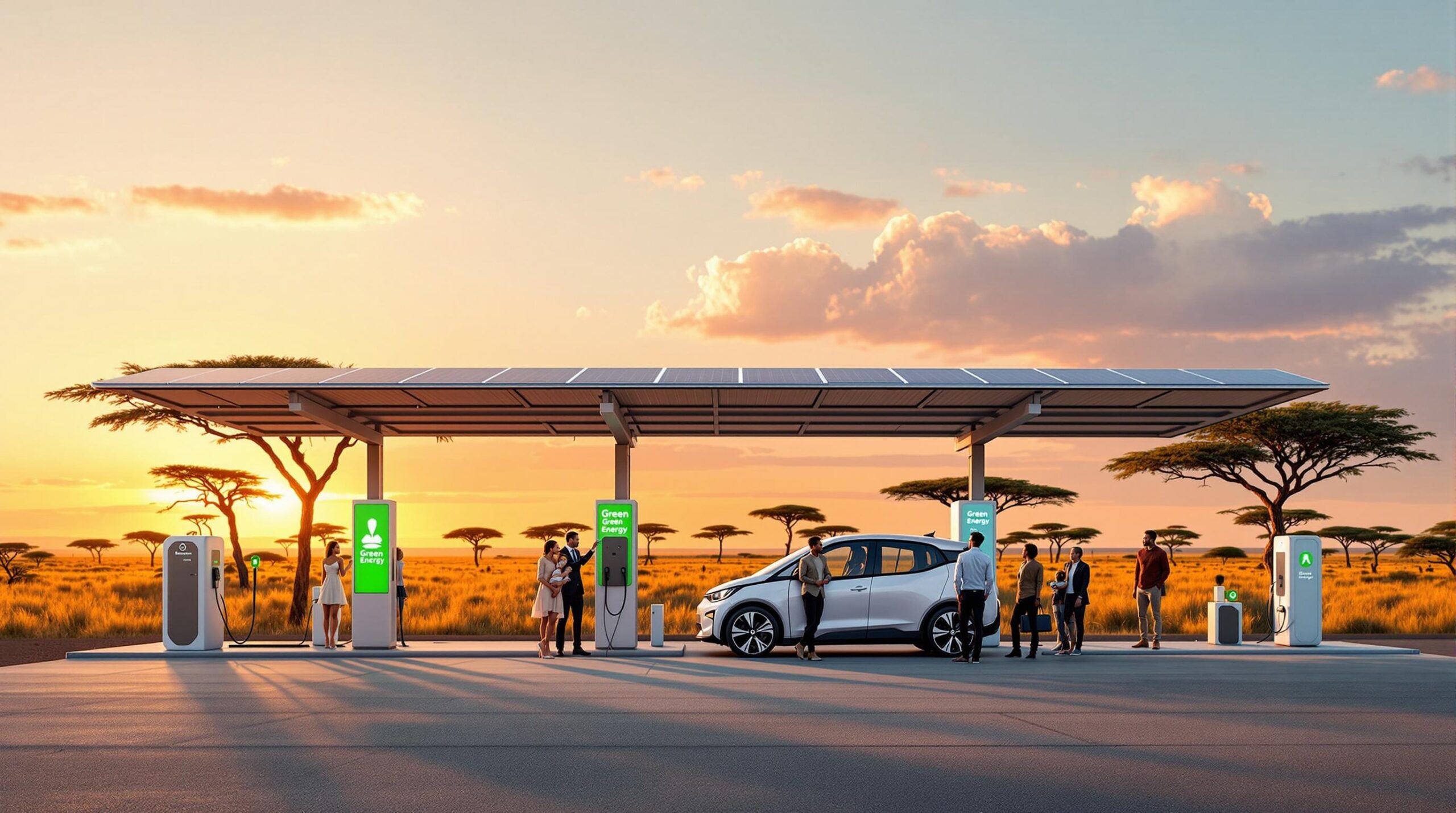
South Africa is introducing 150% tax deductions to boost electric vehicle (EV) manufacturing. These incentives aim to attract investments, lower production costs, and make EVs more affordable. Key points:
- Who Benefits: Open to businesses of all sizes, covering vehicle assembly, battery production, R&D, and charging infrastructure.
- Eligibility: Includes both new facilities and upgrades to existing ones.
- Impact: Encourages local manufacturing, creates jobs, and reduces EV prices for consumers.
Stay updated on government announcements and prepare documentation to take advantage of these benefits.
South African automotive sector at a crossroads amid green car tax incentives
South Africa‘s EV Tax Incentive Program Details
South Africa is considering tax incentives to encourage the growth of EV manufacturing. Here’s an overview of the proposed 150% deduction and potential eligibility requirements.
The 150% Tax Deduction
The plan includes a 150% tax deduction aimed at supporting EV production and promoting eco-friendly transportation. While the exact details of how this deduction will work are still under review, it’s a development worth keeping an eye on for manufacturers and investors. Stay tuned for official announcements.
Potential Eligibility for Tax Incentives
The government has yet to release specific eligibility criteria. However, it’s expected to focus on a range of stakeholders in the EV manufacturing sector. Those interested should keep an eye out for updates on who qualifies and how to apply once the program is finalized.
Further details will be shared as the government finalizes the program.
How to Get EV Manufacturing Tax Benefits
Although the official guidelines for South Africa’s EV manufacturing tax incentives are still pending, manufacturers can start preparing now to make the most of these benefits.
Once the details are released, companies will likely need to submit standard documentation and comply with legal, tax, and environmental requirements. To stay ahead, it’s a good idea to keep an eye on government announcements, consult with tax experts, and note any application deadlines as soon as they are made public.
For updates on government policies and market trends in Africa’s electric vehicle sector, check out EV24.africa.
sbb-itb-99e19e3
Effects on South Africa’s EV Market
South Africa’s updated tax deduction for EV manufacturing signals a major push toward greener transportation options.
Manufacturing Growth Outlook
This incentive is expected to attract more investment into local EV production facilities and encourage established carmakers to scale up their operations. Key benefits include:
- Increased investments in manufacturing plants
- New job opportunities in the automotive sector
- Improved export capabilities for locally made EVs
These advancements in production will also lead to lower costs for consumers.
Consumer Cost Effects
Producing EVs locally reduces logistics and import expenses, resulting in more competitive pricing for buyers. A strong local supply chain, combined with growing competition, is likely to drive prices down even further. As production ramps up and economies of scale kick in, electric vehicles will become more affordable for a broader range of South African consumers.
Common Questions About EV Tax Incentives
Tax Incentive Changes: Past vs Present
South Africa’s EV tax program has evolved to include a wider range of expenses and promote long-term investments. The focus has shifted from short-term perks to encouraging growth in EV production. Here are some common misconceptions cleared up to help manufacturers better understand the updated framework.
Common Tax Incentive Myths
Misunderstandings about South Africa’s EV tax incentives can lead to confusion among manufacturers and investors. Let’s break down a few myths:
-
Myth 1: Only Large Manufacturers Benefit
These incentives are available to businesses of all sizes, providing scalable advantages for both established automakers and smaller, local companies. -
Myth 2: Incentives Are Only for Vehicle Assembly
The program also covers areas like component manufacturing, battery production, charging infrastructure, and research and development. -
Myth 3: Only New Facilities Qualify
Manufacturers upgrading existing production lines can also benefit from these incentives. -
Myth 4: The Process Is Overly Complicated
While documentation is required, the application process is designed to be straightforward.
This initiative highlights South Africa’s dedication to building a thriving EV manufacturing industry.
Summary
South Africa’s new EV tax incentive program introduces a strategic shift in the country’s automotive sector. The program offers a 150% tax deduction covering vehicle assembly, component production, and charging infrastructure development.
Here are the main highlights:
- Open to All: Businesses of any size can apply, encouraging growth across the industry.
- Broad Scope: Incentives go beyond assembly to include R&D, battery manufacturing, and infrastructure projects.
- Versatile Options: Both new facilities and upgrades to existing production lines are eligible.
- Simplified Process: The application process is straightforward and easy to navigate.
This initiative positions South Africa as a growing hub for EV manufacturing. For automakers looking to enter or expand in South Africa’s EV market, these tax benefits present a strong opportunity to scale operations and contribute to the country’s EV development.




